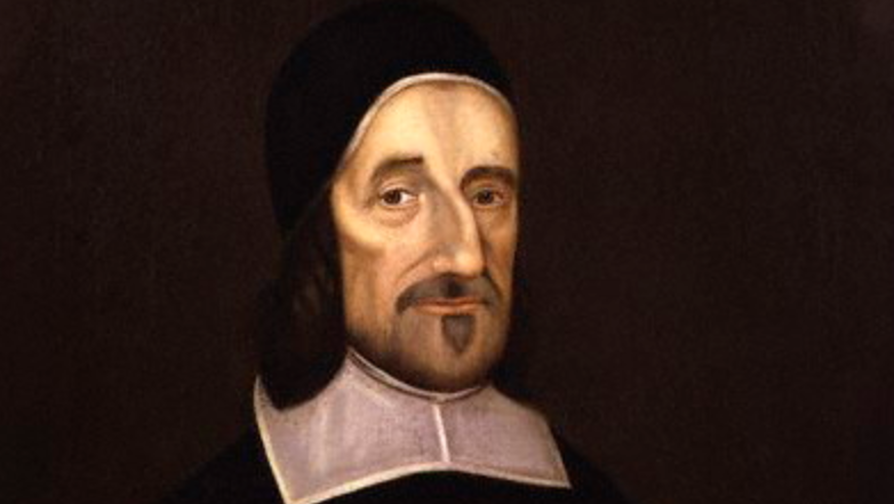Richard Baxter
|
Richard Baxter (1615 - 1691) was an English Puritan church leader, theologian and controversialist, called by Dean Stanley "the chief of English Protestant Schoolmen”.
Richard Baxter never received a higher commission than that of parish pastor to loom workers in Kidderminster. Still, he was the most prominent English churchman of the 1600s. He was a peacemaker who sought unity among Protestants, and yet he was a highly independent thinker—and at the center of every major controversy in England during his lifetime. Born in Rowton to parents who undervalued education, Baxter was largely self-taught. He eventually studied at a free school, then at royal court, where he became disgusted at what he saw as frivolity. He left to study divinity, and at age 23, he was ordained into the Church of England. Baxter, for his part, did his best to avoid the disputes between Anglicans, Presbyterians, Congregationalists, and other denominations, even convincing local ministers to cooperate in some pastoral matters. "In necessary things, unity; in doubtful things, liberty; in all things, charity," he was fond of saying. Baxter became even better known for his prolific writing. His devotional classic The Saints' Everlasting Rest was one of the most widely read books of the century. When asked what deviations should be permitted from the Anglican Book of Common Prayer, he created an entirely new one, called Reformed Liturgy, in two weeks. His Christian Directory contains over one million words. His autobiography and his pastoral guide, The Reformed Pastor, are still widely read today. |
Quotes
|
"I preached … as a dying man to dying men.”
-Richard Baxter “This is that has deceived Christians in this business; they have thought that meditation is nothing but the bare thinking on truths and the rolling of them in the understanding and memory…therefore this is the great task in hand, and this is the work I would set you on: to get these truths from your head to your heart…So much as your understanding and affections are sincerely acted upon by God, so much do you enjoy him; and this is the happy work of meditation…if in this work of meditation you exercise knowledge, and gifts, and faith in miracles, and do not exercise love and joy, you do nothing…if your meditation tends to fill your note-book with notions and good sayings concerning God, and not your heart with longings after him, and delight in him, for all I know your book is as much a Christian as you are.” -Richard Baxter “Meditation is not just thinking about truths in the understanding and memory, but instead it is a gift God has given that allows for the truths to get from our head to our heart. If our time with God’s truth tends to fill our journals with notions and good sayings concerning God, and not our heart with longing after him, and delight in him, then it could be thought that our journal is as much a Christian as we are” -Richard Baxter in necessariis Unitas, in non-necessariis Libertas, in utrisque Caritas. ~Richard Baxter |


